Five talking points from men's Paris-Roubaix 2022
We ask if Ineos are the new champions of the Classics, find out that Wout van Aert isn't very good at bluffing, while wonder what-on-earth was going on with the amount of punctures

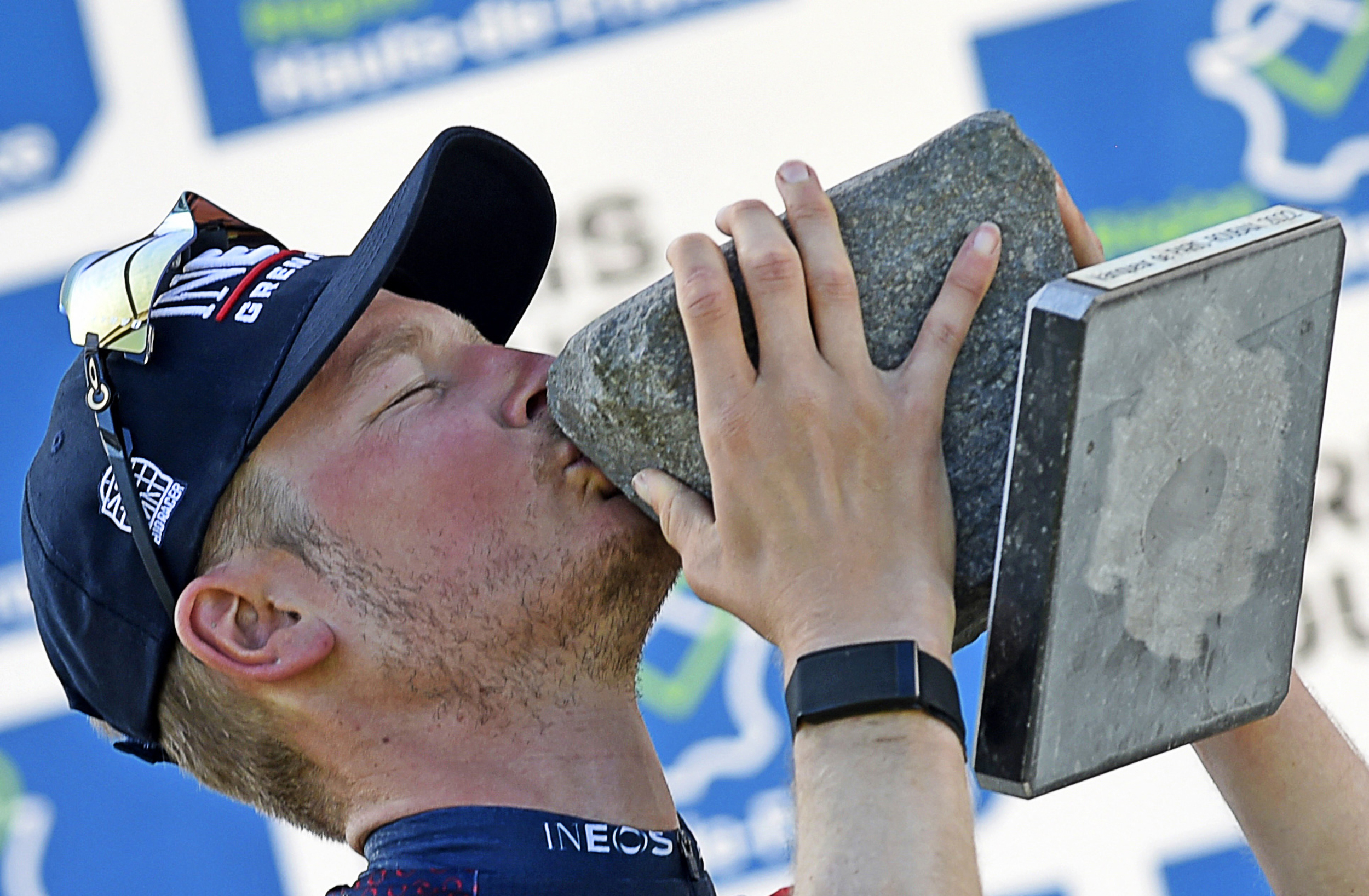
Van Baarle caps outstanding spring for Ineos Grenadiers
It's difficult to write that Ineos Grenadiers are now the leading Classics team after both Jumbo-Visma's and Mathieu van der Poel's multiple successes in the past seven weeks, but for the first time ever in the British superteam's 13-year existence, they are one of the most dynamic and strongest teams when the eyes of the cycling world are fixated on northern European one-day races.
In the last week alone they have taken three victories, Michał Kwiatkowski's win at Amstel Gold being followed by Magnus Sheffield's victory at De Brabantse Pijl, before Dylan van Baarle scored the win that every bike rider dreams of - the Dutchman attacking solo 19km from the line to win a first-ever Paris-Roubaix for both himself and the team.
It was a more than deserved result for the 29-year-old who came so close a fortnight ago at the Tour of Flanders when he placed second behind Van der Poel, the Dutchman also within contention to win the E3 Saxo Bank Classic less than a month ago.
On Sunday Van Baarle was not just attentive throughout but also a key protagonist, helping to form the early split in the peloton after just 40km, and later attacking to bridge what was a substantial gap to the leaders before making his own winning move.
There have been rumours in recent days that Van Baarle could be off to Jumbo-Visma next season, and while his loss would be a sore one for Ineos should it come to pass, Dave Brailsford would still be able to rest comfortably knowing that he has built the foundations of a Classics team that could dominate for years to come.
Heading that group is Sheffield, Tom Pidcock and Ben Turner, the latter exceptional once again on what was the 22-year-old's debut Roubaix in just his first year as a professional.
While much will be made about Quick-Step Alpha Vinyl's barren spring campaign - although they still have La Flèche Wallonne and Liège-Bastogne-Liège to come to salvage some pride - talk must be centred around not just the promise but now the winning form of Ineos Grenadiers.
The latest race content, interviews, features, reviews and expert buying guides, direct to your inbox!
They may have lost their crown as the standout general classification team in recent seasons - but are they now set to supersede Quick-Step as the Classic kings?
Never believe Wout van Aert when he says he can't win
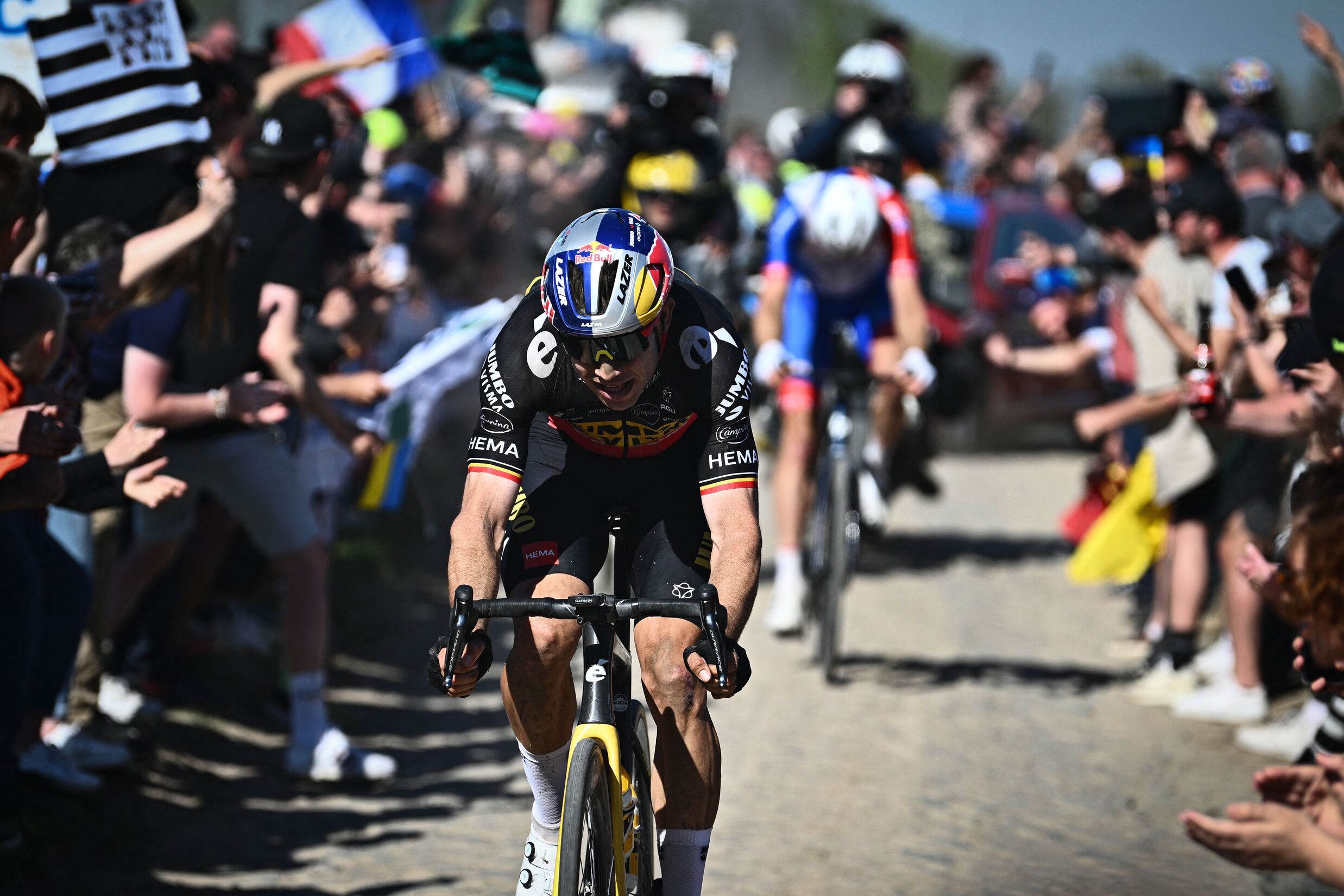
While the debate can rage about the sport's best Classics team, the title of the best cobbled rider this spring can surely go to Wout van Aert.
Winner of the season-opener Omloop Het Nieuwsblad and later the E3 Saxo Bank Classic, Van Aert was ruled out of the Tour of Flanders due to a Covid-19 infection but returned in style to finish second at Roubaix.
This was not meant to happen.
Or at least that was what the Jumbo-Visma man had spent the last few days telling everyone, the 27-year-old only included on the startlist as an apparent helper to nominated team leader Mike Teunissen.
The Belgian press had been speculating ever since Van Aert's Covid positive whether or not he could compete in Roubaix, and some doctors advised against his participation. The man himself even lamented his time away from the bike, suggesting that he was not in the best physical shape to be a contender.
It was utter rubbish. Yes, Van Aert missed the day's first split, but once the peloton unified in the final two hours, no rider tried to attack as much as he did. He was incessant, even an untimely puncture not derailing his efforts as he caught back on and then counterattacked again.
He missed the decisive attack that pre-empted Van Baarle's winning move, but Van Aert was still able to cut a major time gap to ensure that he could arrive into the velodrome with a chance of reaching the podium, something he did by placing second in the sprint.
Doubts around him racing Roubaix were legitimate, but in the end it turns out there's very little that can prevent Van Aert from being at the epic-centre of drama in a bike race.
Fourth feels unjust for Mohorič
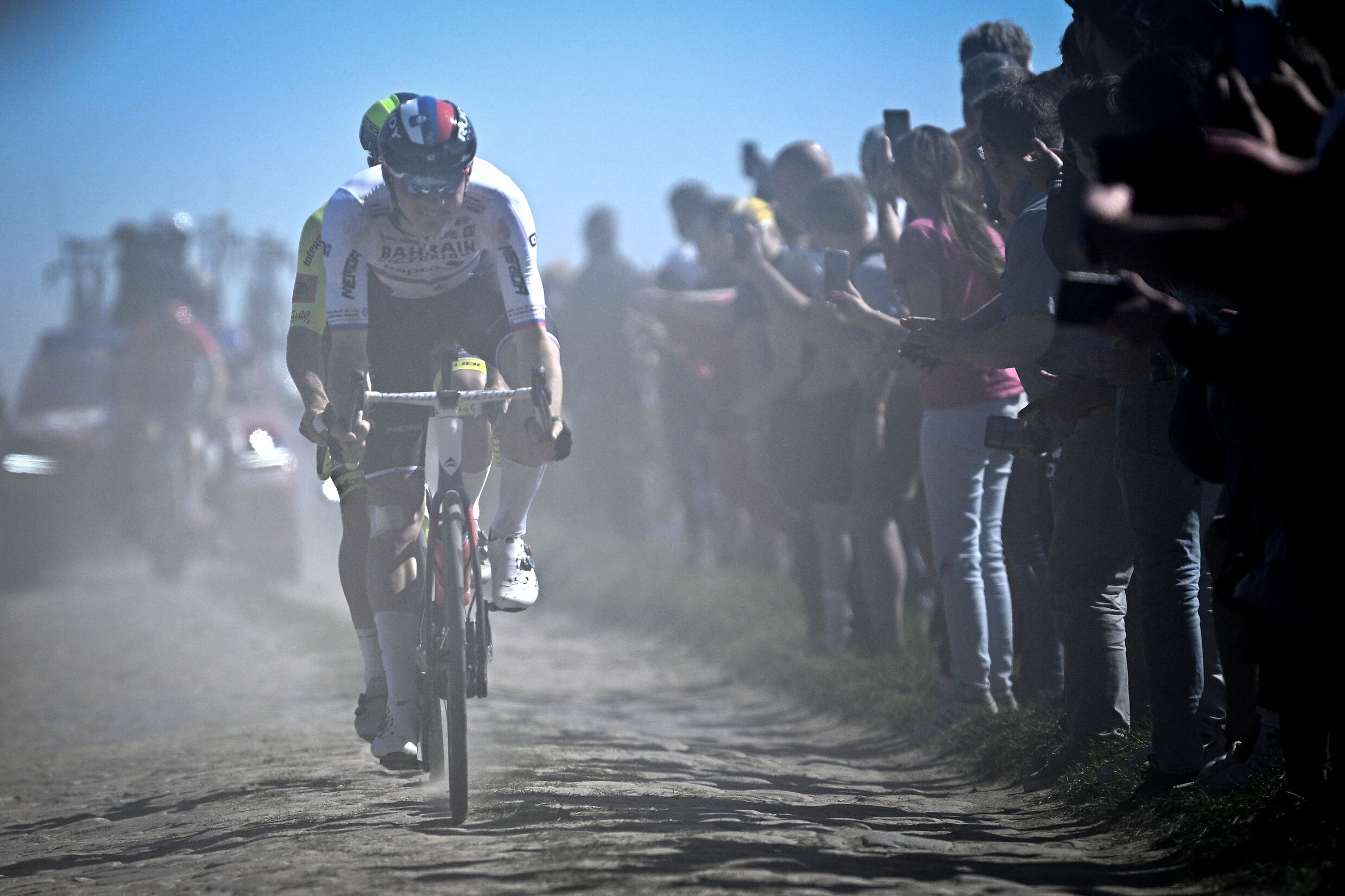
There are a few bike riders who should never be allowed a significant lead, and Matej Mohorič is unquestionably one of those cyclists.
So when the Bahrain-Victorious rider built a gap of around two minutes with three other riders 100km from the line, alarm bells should have been ringing. But nothing was done to bring Mohorič and co. back for well over an hour.
By the time there was 50km left to race, the Slovenian only had Tom Devriendt (Intermaché-Wanty-Gobert Matériaux) for company and the duo held a lead of around 45 seconds.
It was only a very untimely puncture at 38km to go that resulted in Mohorič losing his position at the head of the race. While mechanicals are part and parcel of the Hell of the North, the flat tyre felt unjust, yet still Mohorič clearly had the power and the legs to go again, forming another leading group 10km later.
He was initially hesitant in following Van Baarle's winning move and conceded defeat in his chase just a few kilometres after, but the very least the likeable and attacking 27-year-old warranted was a place on the podium - a result that eluded him as he finished fifth.
A recent winner of Milan-San Remo, Mohorič cannot be disappointed with his start to the season, and this result here, allied to strong showings throughout the cobbled Classics means, mean that he is now firmly entrenched in the group of pavé favourites.
Van der Poel never looked like winning
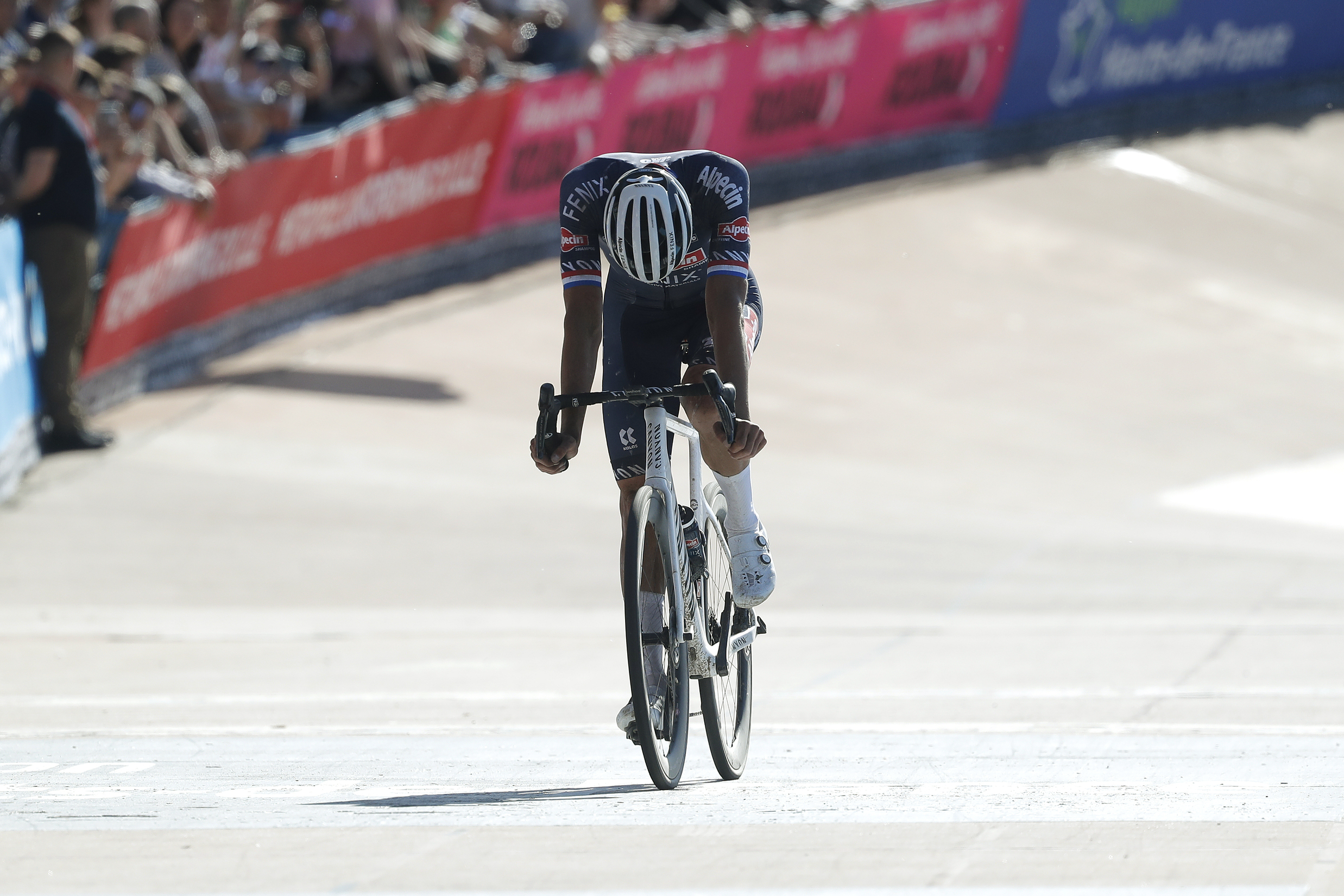
Mathieu van der Poel is also among the A-list group of riders who can win every cobbled race, but the Dutchman struggled to assert any authority at Roubaix.
Third in last autumn's wet and muddy thriller, Van der Poel responded well to missing out on the day's early echelon-induced split by ensuring that he was present in an elite group of 11 that broke clear with 65km still to race.
But while the likes of Wout van Aert, Yves Lampaert and eventual winner Dylan van Baarle repeatedly attacked and tried to instigate something, Van der Poel was only ever mopping up and trying to stay on.
At 22km to go, the Alpecin-Fenix rider was unable to respond to Van Aert's later move, Van der Poel crossing the line more than two-and-a-half minutes behind Van Baarle in ninth place.
It's certainly not a shameful result - especially so given that this was only his second Roubaix participation - but considering his outstanding form that includes wins at the Tour of Flanders and Dwars door Vlaanderen, more was expected of the 27-year-old.
There was even a suggestion that Van der Poel's back could have been suffering from the severity of the cobbles, the Dutchman only recently returning to road racing following an injury to his back.
Whatever the reason, Van der Poel had an off-day by his standards, but his spring campaign still reads three wins, a third at MIlan-San Remo and fourth at Amstel Gold. An enviable palmarés.
Why were there so many punctures?
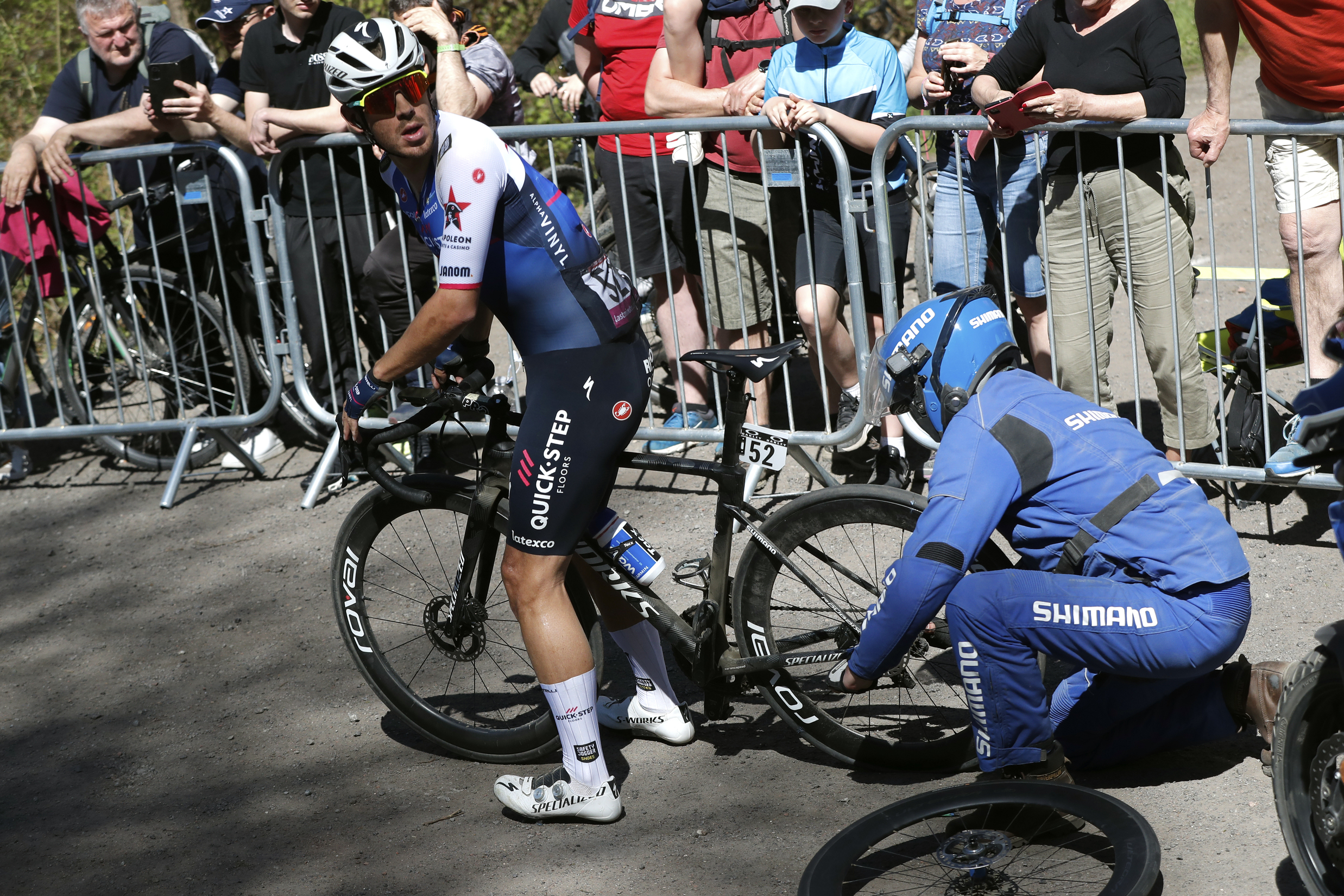
The tech chat pre-race was about Team DSM deciding not to use its new on-board tyre pressure control system that they had announced to huge intrigue just a few days that they would be trialling on the biggest stage of all.
It only took an hour's of racing, however, for everyone to forget about the new fancy technology and to instead focus on why so many riders were suffering punctures.
Of course, in a race like Paris-Roubaix a mechanical can strike at any time, and the race's history is peppered with numerous incidences of race winners, leaders and favourites being hindered by an untimely puncture.
But it is hard to remember an edition, at least in recent memory, where so many different riders fell victim to a flat tyre. At one point, five riders were seen tending to a flat in just a 200m section of cobbles, with Wout van Aert, Matej Mohorič, Filippo Ganna, Jasper Stuyven and even winner Dylan van Baarle all finishing the race on wheels that they didn't start with.
Most teams now ride tubeless tyres instead of tubular, and just a few days ago a Movistar team representative told CW that while tubeless technology was "not a perfect system, it's close to it. I will say it's not the future - it's the present."
That assertion will now be called into question given the amount of punctures experienced on a dry, dusty Sunday in hell, with teams at the forefront of those asking the question.
In the end, Van Baarle was still able to win in spite of his own flat tyre, but in a sport where every tiny detail matters, expect every single team to be investigating why this year's edition of Paris-Roubaix was blighted by so many flats.
A freelance sports journalist and podcaster, you'll mostly find Chris's byline attached to news scoops, profile interviews and long reads across a variety of different publications. He has been writing regularly for Cycling Weekly since 2013. In 2024 he released a seven-part podcast documentary, Ghost in the Machine, about motor doping in cycling.
Previously a ski, hiking and cycling guide in the Canadian Rockies and Spanish Pyrenees, he almost certainly holds the record for the most number of interviews conducted from snowy mountains. He lives in Valencia, Spain.
